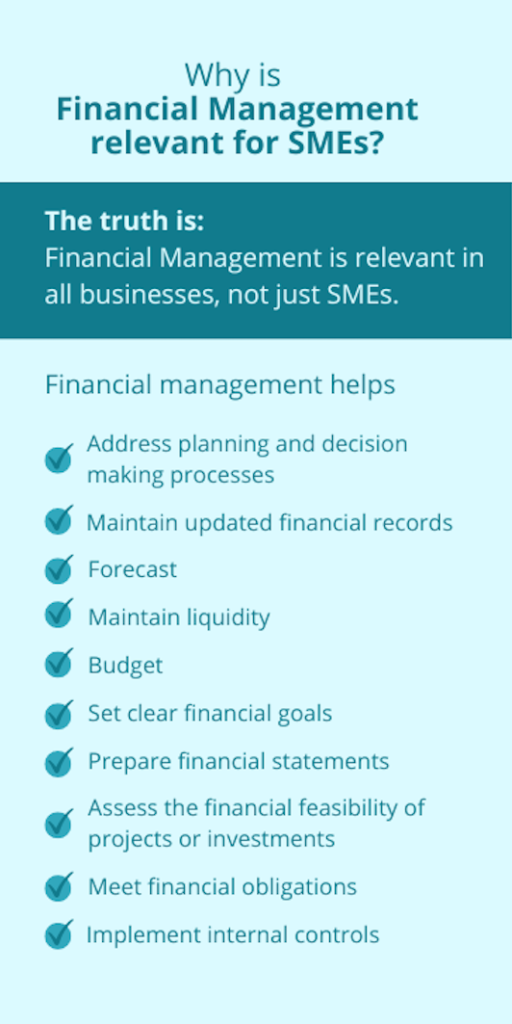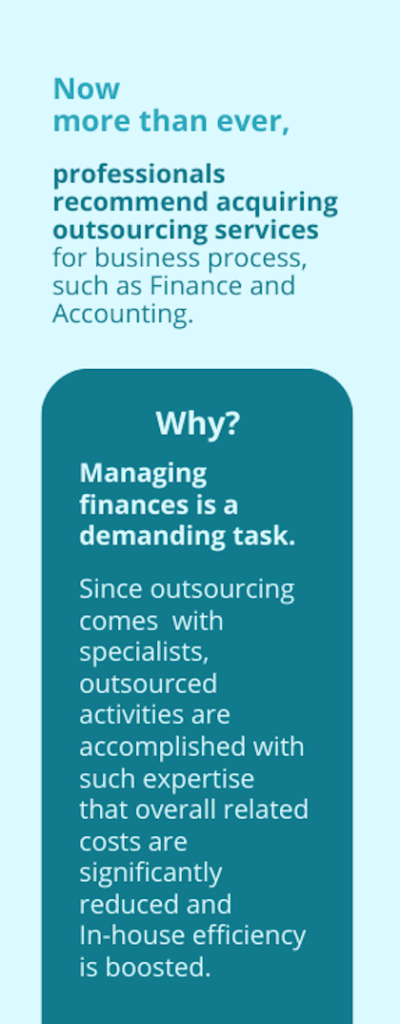Financial Management Simplified: This is how!
Financial Management Simplified: This is how!
Welcome to financial management simplified!
Managing your finances effectively is essential for the success and growth of your business. It involves making financial decisions, tracking your income and expenses, and planning for the future. In this blog entry we’ll explore some key concepts, tools and challenges to help you navigate the world of financial management.
Why is access to finance a challenge for SMEs?
It can be challenging due to several reasons, three of them:
- Limited Collateral: Collateral refers to assets that banks and lenders pledge as security for a loan. SMEs often lack the necessary collateral to secure loans from traditional financial institutions. When collateral is limited, financial institutions may perceive the loan as riskier. As a result, they may charge higher interest rates to compensate for the increased risk.
- Lack of Financial History: Newly established businesses may have limited or no financial history. Borrowers usually rely on historical financial data to evaluate the risk associated with lending. If there is not a track record, then SMEs may face challenges to assess their creditworthiness, access loans, and may be offered higher interest rates or more rigid terms.
- Lack of Information and Financial Literacy: SMEs can struggle in understanding the complex financial requirements and processes associated with accessing finance. Limited financial literacy can make it difficult for business owners to prepare necessary financial documents, such as financial statements or business plans, that are often required by lenders. On the other hand, SMEs can experience trouble when navigating the financial ecosystem and identifying appropriate financing options.
What is the role of financial management in SMEs?

The role of financial management for SMEs is crucial since it is directly related to the success and sustainability of the enterprise. It helps to address planning and decision making processes as it provides the necessary financial information and analysis. As well, it is used for forecasting, budgeting, and assessing the financial feasibility of projects or investments. It is a tool that helps to set clear financial goals and develop strategies to achieve them.
On the other hand, effective cash flow management is essential for SMEs to maintain liquidity and meet their financial obligations. Financial management is used to deliver continuous monitoring of cash inflows and outflows, manage working capital, and optimize inventory levels. The correct management of cash flow helps SMEs to avoid cash shortages, make the necessary payments, and take opportunities for growth.
Finally, maintaining updated financial records, preparing financial statements in accordance with account standards and fulfilling tax obligations involves staying up-to-date with regulatory changes and implementing internal controls to safeguard assets and ensure financial transparency. Therefore, financial management is a tool that SMEs need to achieve great compliance and reporting.
Is finance management stressful?
Yes. Managing the financial health of an entire organization comes with a great deal of responsibility. For business owners or managers who may have limited financial expertise or resources it can become particularly difficult.
Startup and SME owners or managers often handle various aspects and operations of the business, one of them, finance management. Having multiple responsibilities can create stress, especially when time and expertise are limited.
Also, SMEs may face financial uncertainties, such as unpredictable cash flow, market volatility, or unexpected expenses. These uncertainties can make financial planning and decision-making more challenging and contribute to stress, anxiety, slow processes and errors.
How can I succeed in Financial Management?
As we have seen, managing finances can be a demanding task. Remember there are several options available to handle finance management for your business. By exploring these options, you can find the right approach that suits your needs and reduces stress.
Embrace technology and strengthen your company by incorporating financial management software and tools. Today there are in the market user-friendly accounting software options available that can simplify tasks like bookkeeping, invoicing, and financial reporting such as SAP Business One. These tools can automate processes, provide real-time insights, and help you stay organized. By using such software, you can streamline your financial management, reduce manual errors, and save time for other important aspects of your business.
On the other hand if handling finance management feels overwhelming or you feel that you lack the necessary expertise, consider outsourcing certain finance functions to professionals. You can hire an accountant, bookkeeper, or a financial consultant on a part-time or project basis. They can help you with tasks like financial analysis, tax preparation, or strategic financial planning. Outsourcing these functions allows you to focus on your core business while ensuring that your finances are managed by experts. Learn more about our BPO for finance management!

Remember, as an SME, you have unique strengths, agility, and the ability to adapt quickly to market changes. Embrace your potential, stay motivated, and keep pushing forward.
Are you interested in getting Financial Management assistance? Get to know our outsourcing services for Finances and Accounting

